- Home
- J. Robert Kennedy
The Templar's Revenge (A James Acton Thriller, #19) (James Acton Thrillers)
The Templar's Revenge (A James Acton Thriller, #19) (James Acton Thrillers) Read online
The Templar's Revenge
A James Acton Thriller
by
J. Robert Kennedy
From the Back Cover
ARE EIGHT CENTURIES OF DUTY AND HONOR ABOUT TO COME TO AN END?
The True Cross, revered by Christianity as that upon which Jesus Christ was crucified, was lost to the Muslims led by Saladin during the Battle of Hattin on July 4th, 1187 AD.
Or was it?
Join Archaeology Professor James Acton and his wife Laura Palmer, as they are thrust into the middle of a bitter conflict between what remains of the Knights Templar, torn apart over an oath sworn 800 years ago, an oath that may destroy them once and for all, taking Acton and Laura with them.
About the James Acton Thrillers
"James Acton: A little bit of Jack Bauer and Indiana Jones!"
Though this book is part of the James Acton Thrillers series, it is written as a standalone novel and can be enjoyed without having read any of the previous installments.
About J. Robert Kennedy
With over 700,000 books in circulation and over 3000 five-star reviews, USA Today bestselling author J. Robert Kennedy has been ranked by Amazon as the #1 Bestselling Action Adventure novelist based upon combined sales. He is the author of over thirty international bestsellers including the smash hit James Acton Thrillers. He lives with his wife and daughter and writes full-time.
"A master storyteller." — Betty Richard
"A writer who tells what we are thinking but sometimes afraid to say." — Bruce Ford
"Kennedy kicks ass in this genre." — David Mavity
"One of the best writers today." — Johnny Olsen
"If you want fast and furious, if you can cope with a high body count, most of all if you like to be hugely entertained, then you can't do much better than J Robert Kennedy." — Amazon Vine Voice Reviewer
Get 5 Free eBooks!
Get the J. Robert Kennedy Starter Library by joining The Insider's Club and be notified when new books are released!
Find out more at www.jrobertkennedy.com.
Follow me on Facebook, BookBub, GoodReads and Twitter.
Books by J. Robert Kennedy
The James Acton Thrillers
The Protocol
Brass Monkey
Broken Dove
The Templar's Relic
Flags of Sin
The Arab Fall
The Circle of Eight
The Venice Code
Pompeii's Ghosts
Amazon Burning
The Riddle
Blood Relics
Sins of the Titanic
Saint Peter's Soldiers
The Thirteenth Legion
Raging Sun
Wages of Sin
Wrath of the Gods
The Templar's Revenge
The Special Agent Dylan Kane Thrillers
Rogue Operator
Containment Failure
Cold Warriors
Death to America
Black Widow
The Agenda
The Delta Force Unleashed Thrillers
Payback
Infidels
The Lazarus Moment
Kill Chain
Forgotten
The Detective Shakespeare Mysteries
Depraved Difference
Tick Tock
The Redeemer
Zander Varga, Vampire Detective Series
The Turned
Table of Contents
Get 5 Free eBooks!
Table of Contents
Beginning
Preface
1
2
3
4
5
6
7
8
9
10
11
12
13
14
15
16
17
18
19
20
21
22
23
24
25
26
27
28
29
30
31
32
33
34
35
36
37
38
39
40
41
42
43
44
45
46
47
48
49
50
51
52
53
54
55
56
57
58
59
60
61
62
63
64
65
66
67
68
69
Acknowledgements
Don't Miss Out!
Thank You!
About the Author
Also by the Author
For Manchester.
“Saladin ordered that they should be beheaded, choosing to have them dead rather than in prison. With him was a whole band of scholars and Sufis and a certain number of devout men and ascetics, each begged to be allowed to kill one of them, and drew his sword and rolled back his sleeve. Saladin, his face joyful, was sitting on his dais, the unbelievers showed black despair.”
Imad ed-Din
Saladin’s secretary, on the execution of captured Templar Knights
Circa 1187
“Non nobis, Domine, non nobis, sed Nomini tuo da gloriam.”
“Not unto us, O Lord, not unto us, but unto thy Name give glory.”
Motto of the Knights Templar
Preface
Around 1119 AD, nine men traveled to the Holy Land as part of the First Crusade. Led by a nobleman, Hugues de Payens, they approached King Baldwin II of the Kingdom of Jerusalem, and received permission to form their order, the Poor Fellow-Soldiers of Christ and of the Temple of Solomon. Their headquarters was established at the Temple Mount, and for almost two centuries, they fulfilled their duty to protect pilgrims on their journey to the Holy Land, and much more.
From humble beginnings, these nine founded what would become a force of over 20,000, with over 2,000 knights. Their power and influence stretched from the Holy Land to Christendom, their accumulated wealth enough to rival kings. The first international bankers, they held vast amounts of real estate, and were answerable only to the Pope.
All of which would lead to their betrayal.
And downfall.
But as skilled warriors and tacticians, with such wealth at their disposal, could such a group truly be destroyed?
Would those who survived the purge, truly lay down their arms while those who had betrayed them continued on, unpunished?
After eight centuries, this group continues to fascinate, leaving millions still to question what became of the Knights Templar.
1
Saint-Pierre-la-Mer, France
Present Day
Simone Chartrand gripped the wheel tightly with both hands. He had trained for these situations, yet had never been in one before. It was exhilarating and terrifying at the same time, and though part of him enjoyed the adrenaline rush, he would trade it all for the leisurely drive to the chateau originally planned.
But it would appear Pierre Ridefort, his employe
r’s son, had other plans for his passengers.
“Weapons?”
He glanced in his rearview mirror at his passengers, two professors his employer had flown over for a purpose he wasn’t privy to. “I’ve got a Glock in my shoulder holster, spare mags in the glove compartment.”
“Can we call someone?” asked the woman.
Chartrand shook his head. “I’ve already tried, but I’m getting no answer. It’s as if the lines are down.”
“No cellphones at the chateau?”
“No, Monsieur Ridefort always considered them insecure. In fact, he has jammers so they can’t be used on the grounds.”
Archaeology Professor James Acton’s eyes narrowed. “A little paranoid, isn’t he?”
“With good reason, evidently,” said his wife, Archaeology Professor Laura Palmer.
Chartrand pressed on the accelerator, taking the next corner hard, as he tried to put more distance between them and the vehicle following them. “Sorry about that.”
Acton collected himself in the back seat. “Don’t apologize. Just get us to the chateau.”
Chartrand gasped as he saw something ahead. He reached forward and hit the cruise control as a loud bang preceded the splintering of the windshield.
And the end of his life.
2
Outside Hattin, Kingdom of Jerusalem
July 4, 1187 AD
Raymond glanced over his shoulder at his master and friend, the grief on the man’s face matching his own. It was a massacre. There was no other word to describe it. They had marched into battle against the forces of Sultan Salah ad-Din, commonly known among the Christian population as Saladin, 20,000 strong, including 1500 knights on horseback.
And they were no more.
Saladin’s forces were larger in number, but that wasn’t why they had lost. His master, Sir Guy of Ridefort, had been privy to the disastrous planning sessions by their leaders, leaders so filled with distrust of each other, that those ultimately in charge did the opposite of what their political rivals recommended, seemingly even if it were obvious the advice was correct.
And it had led to their downfall.
Almost every man was dead or dying, and now a long line of their brothers, their fellow soldiers, all devout members of the Poor Fellow-Soldiers of Christ and of the Temple of Solomon, all members of the Knights Templar, were being shown no quarter. While the nobles had been shown mercy, for kings did not kill kings, the local converts to Christianity were slaughtered, and the European Christians that had survived, prepared for sale in the slave markets.
But the Templar and Hospitaller Knights were beheaded one by one, as Saladin watched on from an elevated platform, smiling and laughing with his court. Eager leaders of their blasphemous Muslim religion stood in line for the opportunity to behead one of these brave men, proving to Raymond they were the bloodthirsty savages his clergy had warned him of. He couldn’t imagine a Christian clergyman eagerly beheading an infidel, yet here, hidden among the rock-strewn hills, he and Sir Guy watched the depravity enthusiastically endorsed and participated in, by men who claimed to hold their god above all else.
What god would want innocent men who had surrendered, to be slaughtered?
He had heard it told that the Muslims worshiped the same god as he did, yet he found that impossible to believe. But if they did, they had corrupted His teachings, as had the Jews who had once overrun this land and murdered his Lord, Jesus Christ.
A tear rolled down his cheek as he saw the venerated True Cross hoisted over the heads of the cheering mob of soldiers, their shouts of Allahu Akbar echoing between the hills that had hemmed in the Crusader army, ultimately dooming it.
“We must do something, your honor.”
Sir Guy tore his eyes away from the torturous sight below to look at his sergeant. “And what would you propose we do? Rush down there and take on thirty-thousand men, just the two of us?”
“But it’s the True Cross! Those heathens will destroy it!”
“Which is why we must keep our heads. We are but two, with no hope of retrieving it. If there is ever any hope of rescuing that upon which our Savior sacrificed Himself for our sins, then we must know what they do with it.”
“But what if they destroy it here, today?”
Sir Guy shook his head. “No, I don’t think Saladin will do that. He will destroy it for his people to see, to prove their victory over us to those he needs to sustain his armies. He will take it to a city and destroy it publicly. We must determine where that is, and where in that city he is holding it. Only then can we act.”
“But we are still only two.”
Sir Guy reached out and grabbed Raymond’s shoulder with a smile. “You are mistaken, my friend. We are at least three.” His eyes turned to the Heavens. “We have God on our side, and with Him, nothing can stop us.”
Raymond nodded, not saying anything, instead turning to watch another of their friends beheaded by the horde below.
If God is on our side, who was on theirs that could defeat us so soundly?
3
Saint-Pierre-la-Mer, France
Four years ago
Jacques Ridefort sat on his couch, watching the horrifying events unfold at the Vatican, tens of thousands of Muslims having charged the gates of the holy city, overwhelming the small, mostly symbolic force. What had already been a stressful situation for him and his son was now even more so. The loss of the Vatican was an unfathomable occurrence, yet here it was, on his television screen, playing out for the world to see.
It wouldn’t last.
The Italian government was already promising swift action, with many nations already pledging troops. Some commentators were calling for the army to kill everyone in sight, others calling for calm.
He feared who would win the day.
But these calamitous events weren’t his primary concern. It was the discovery of the crypt holding four Templar Knights that had led to the discovery of a scroll containing a passage from the Koran that occupied his thoughts. It wasn’t the Koranic fragment that concerned him—he couldn’t care less, his opinion on Islam one of disdain. It was the bodies of the knights themselves. For they were family, and with their discovery, they were no longer at peace, and someone, perhaps someone of importance, would eventually wonder why they were there.
And that was something he wasn’t certain the world was ready to know.
“They’ve identified them!”
He looked up as his son, Pierre, barely twenty, rushed into the room, holding up his iPad. “It’s on the BBC website.”
Jacques frowned. “So soon?” He sighed. “Well, if our documents are accurate, then the sarcophagi were engraved with their names, so I guess we shouldn’t be surprised.”
“Oh, I think you will be.”
Jacques’ eyes narrowed. “What do you mean?”
“They’ve identified them as Sir John of Ridefort, Rodney of Ridefort, and get this.” There was a dramatic pause. “Hugues de Payens and Godfrey de Saint-Omer.”
Jacques’ jaw dropped slightly as he leaned forward. “They don’t know about the nameplates!”
Pierre shook his head. “Evidently. But why would they get two right, and two wrong?”
Jacques chewed his cheek for a moment. “I don’t know. But this does complicate things.”
“Does it? They’ve desecrated the bodies of our ancestors, whether they have their names right or not. We need to do something!”
Jacques stared at his son. “And what would you have us do? Reveal ourselves to the world, and risk that which we have protected for so long?”
His son sighed, dropping into a chair across from his father. “Why not? What our family has done for eight centuries is, well, cool! We’re actually Templars. Who else can say that? Why shouldn’t we go public with who we are, and what we do? It’s not like we have to tell everyone where the artifact is. But shouldn’t we get some credit for what we’ve done? For what we’ve sacrificed?”
Hi
s father shook his head. The boy was impetuous, obsessed with things his generation seemed uniquely cursed with. Instant gratification, recognition without effort, fame, fortune, adulation. It made him fear for the future of what remained of the Order. Jacques was the current Grand Master of the Knights Templar, his family carrying on the traditions in their own small way, handed down for almost 800 years in anonymity, hidden from the world. As far as he could tell from reading the journals of those who had come before him, none had ever questioned their duty, though he was certain those accounts were whitewashed to a point. All boys had their problems, though over time, they became men, eventually realized what that meant, and became responsible adults.
But this generation was different.
His son showed no signs of maturing, instead growing increasingly obsessed with the fact he was a Templar, and how “cool” that was, how important that was, and how it entitled him to a glory that was being denied him unfairly.
But he was young.
And he should have another twenty years before it would be his turn to lead.
Should.
Yet he wouldn’t. Jacques was dying. Pancreatic cancer. He had perhaps a year or two left, unless the aggressive treatment he was undergoing worked, and even then, the chances of him being alive in five years were slim to none. That meant Pierre would be taking over.
It was terrifying.
Should he go public, that which they had protected for so long might be lost to zealots hell-bent on possessing it, or worse, on destroying it. And that had to be his focus, not concerns over whether his ancestors were treated with respect, now that they had been discovered.
“Well?”
He gazed at his son, still staring at him impatiently. He hadn’t told him about the cancer, and his son was so self-absorbed, he hadn’t noticed that his father was wasting away before his eyes. He frowned. “We must protect it at all costs, and cannot risk public disclosure, not now.” He returned his attention to the television screen. “For now, we need to ensure the dignity of our ancestors is preserved.”

_preview.jpg) The Protocol (A James Acton Thriller, Book #1)
The Protocol (A James Acton Thriller, Book #1)_preview.jpg) Depraved Difference (A Detective Shakespeare Mystery, Book #1)
Depraved Difference (A Detective Shakespeare Mystery, Book #1)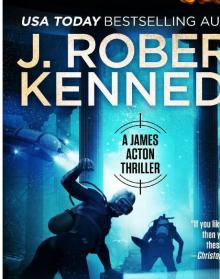 Atlantis Lost
Atlantis Lost The Tomb of Genghis Khan
The Tomb of Genghis Khan_preview.jpg) Rogue Operator (A Special Agent Dylan Kane Thriller, Book #1)
Rogue Operator (A Special Agent Dylan Kane Thriller, Book #1) Forgotten
Forgotten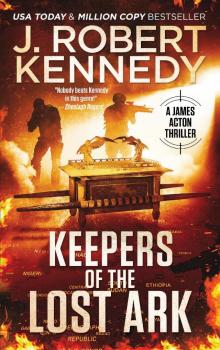 Keepers of the Lost Ark
Keepers of the Lost Ark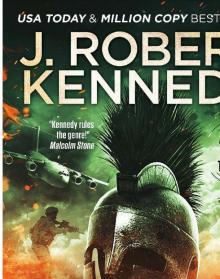 The Cylon Curse
The Cylon Curse The Colonel's Wife
The Colonel's Wife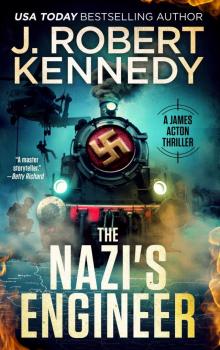 The Nazi's Engineer
The Nazi's Engineer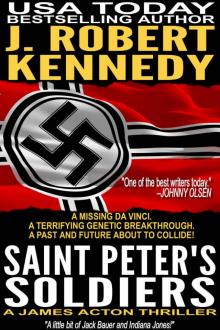 Saint Peter's Soldiers (A James Acton Thriller, Book #14)
Saint Peter's Soldiers (A James Acton Thriller, Book #14)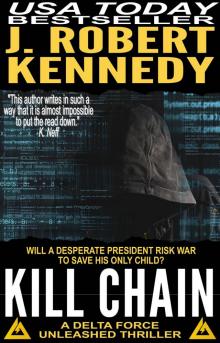 Kill Chain
Kill Chain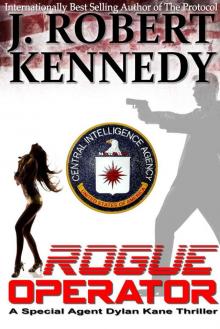 Rogue Operator
Rogue Operator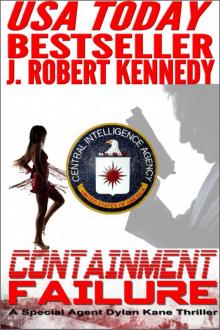 Containment Failure (A Special Agent Dylan Kane Thriller, Book #2)
Containment Failure (A Special Agent Dylan Kane Thriller, Book #2) The Lazarus Moment
The Lazarus Moment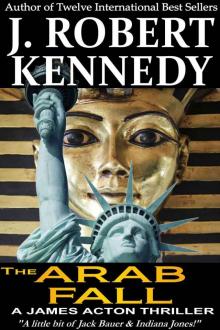 The Arab Fall (A James Acton Thriller, Book #6) (James Acton Thrillers)
The Arab Fall (A James Acton Thriller, Book #6) (James Acton Thrillers) Payback
Payback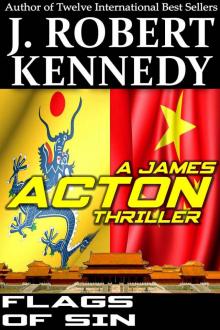 Flags of Sin - 05
Flags of Sin - 05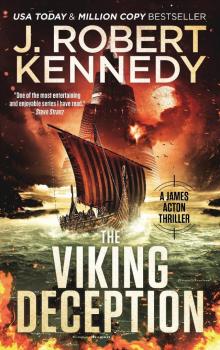 The Viking Deception
The Viking Deception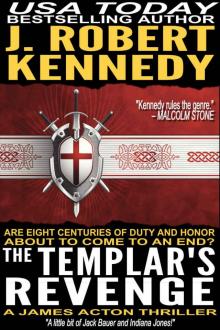 The Templar's Revenge (A James Acton Thriller, #19) (James Acton Thrillers)
The Templar's Revenge (A James Acton Thriller, #19) (James Acton Thrillers)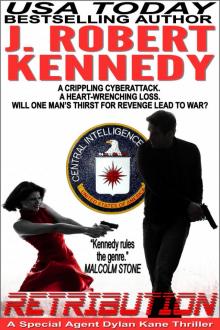 Retribution - A Special Agent Dylan Kane Thriller Book #7
Retribution - A Special Agent Dylan Kane Thriller Book #7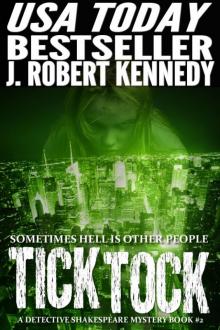 Tick Tock (A Detective Shakespeare Mystery, Book #2)
Tick Tock (A Detective Shakespeare Mystery, Book #2)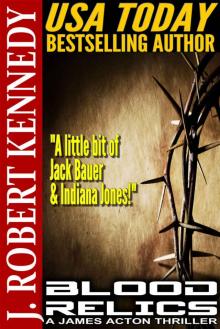 Blood Relics (A James Acton Thriller, #12)
Blood Relics (A James Acton Thriller, #12)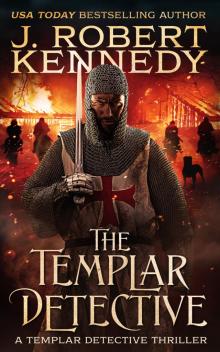 The Templar Detective
The Templar Detective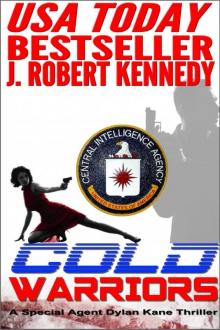 Cold Warriors (A Special Agent Dylan Kane Thriller, Book #3)
Cold Warriors (A Special Agent Dylan Kane Thriller, Book #3)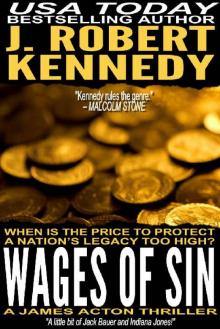 Wages of Sin (A James Acton Thriller, #17) (James Acton Thrillers)
Wages of Sin (A James Acton Thriller, #17) (James Acton Thrillers)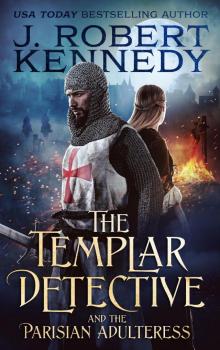 The Templar Detective and the Parisian Adulteress
The Templar Detective and the Parisian Adulteress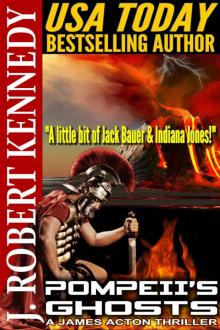 Pompeii's Ghosts (A James Acton Thriller, #9)
Pompeii's Ghosts (A James Acton Thriller, #9) Raging Sun (A James Acton Thriller, #16) (James Acton Thrillers)
Raging Sun (A James Acton Thriller, #16) (James Acton Thrillers)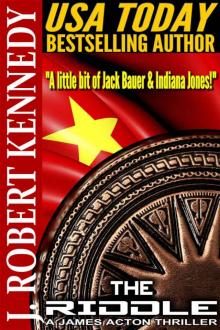 The Riddle (A James Acton Thriller, Book #11)
The Riddle (A James Acton Thriller, Book #11)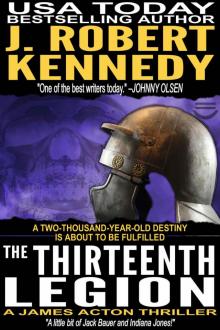 The Thirteenth Legion (A James Acton Thriller, #15) (James Acton Thrillers)
The Thirteenth Legion (A James Acton Thriller, #15) (James Acton Thrillers)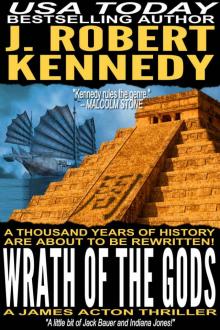 Wrath of the Gods (A James Acton Thriller, #18) (James Acton Thrillers)
Wrath of the Gods (A James Acton Thriller, #18) (James Acton Thrillers) Sins of the Titanic (A James Acton Thriller, #13)
Sins of the Titanic (A James Acton Thriller, #13) Amazon Burning (A James Acton Thriller, #10)
Amazon Burning (A James Acton Thriller, #10)